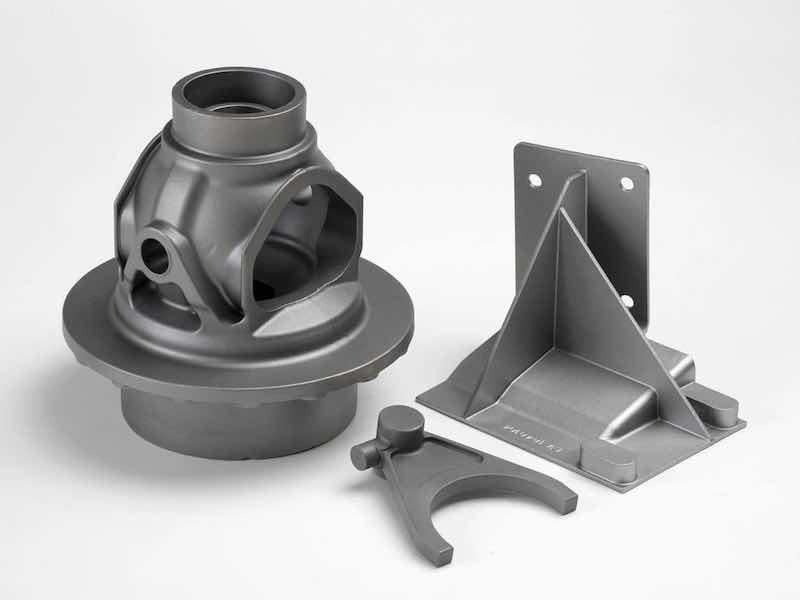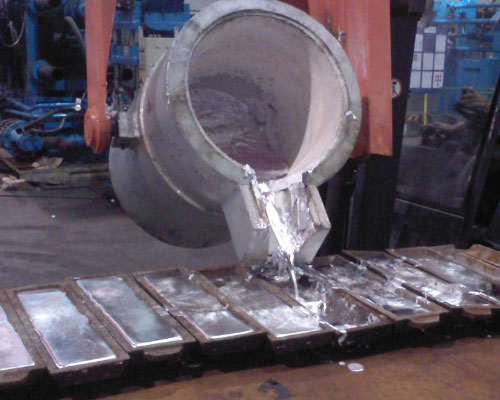The Vital Uses Aluminum Foundry in Various Industries and Their Effect
Aluminum shops serve as a necessary source within countless markets. Their resilient and lightweight materials substantially improve efficiency in automotive, aerospace, construction, and electronics fields. As each industry leverages light weight aluminum's unique residential or commercial properties, they additionally add to sustainability initiatives. This diverse influence prompts a deeper exploration of how Aluminum shaped these industries. What certain innovations and benefits occur from its usage?
Automotive Market Applications
The auto market progressively counts on Aluminum Foundry applications to boost car efficiency and effectiveness. Light weight aluminum's light-weight nature adds considerably to sustain economy, making it a recommended selection for makers intending to reduce emissions and boost overall automobile dynamics. Components such as engine blocks, transmission housings, and wheels are typically produced via Aluminum casting processes, enabling detailed styles that satisfy strenuous safety and performance requirements.

Aerospace Innovations

The usage of aerospace-grade Aluminum alloys enhances resistance to rust and fatigue, essential for the requiring environments airplane face. Advancements in additive production additionally permit rapid prototyping and personalization of parts, minimizing preparations and expenses.
Construction and Framework
While the building and construction and infrastructure sectors proceed to evolve, Aluminum shops are increasingly identified for their contributions to modern building practices. Aluminum's light-weight nature and high strength make it a suitable product for various structural applications. Shops provide components such as beams, frames, and facades that enhance the resilience and durability of buildings and framework tasks.
Additionally, light weight aluminum's corrosion resistance plays an essential function in expanding the lifespan of structures revealed to harsh ecological conditions. The power effectiveness of Aluminum items likewise straightens with sustainable building campaigns, adding to lower power consumption in building and construction. In addition, cutting-edge spreading techniques have actually expanded the style opportunities, permitting designers and designers to create visually pleasing yet useful structures.
Electronics Production
Aluminum factories play a considerable duty in the electronics manufacturing sector, where the demand for lightweight and thermally conductive materials is vital. Wisconsin Aluminum Foundry. Components such as heat sinks, housings, and braces are frequently created making use resource of Aluminum as a result of its superb thermal homes and capacity to dissipate warmth effectively. This is crucial in electronic gadgets, where getting too hot can cause failure and minimized efficiency
The convenience of Aluminum enables complex designs and exact machining, which are necessary in modern electronics. Additionally, light weight aluminum's non-magnetic buildings make it suitable for applications in sensitive electronic tools, decreasing interference. Light weight aluminum's resistance to deterioration improves the resilience of digital components, ensuring long life and dependability.
Sustainability and Recycling Initiatives
Given the boosting focus on ecological duty, the Aluminum Foundry sector has made considerable strides in sustainability and recycling initiatives. Aluminum is naturally recyclable, allowing shops to redeem and recycle material with very little power expense contrasted to key production. This closed-loop recycling process not only lowers waste however likewise decreases greenhouse gas discharges, adding to a more sustainable read the article manufacturing version.
Furthermore, several shops are embracing energy-efficient modern technologies, consisting of renewable resource resources, to power their procedures (Metal Castings). This change not just decreases reliance on fossil fuels yet also boosts total operational effectiveness
Market cooperations are further advertising sustainable methods, such as sharing ideal techniques and creating innovative reusing approaches. By prioritizing these initiatives, the Aluminum Foundry sector is placing itself as a leader in sustainable production, aligning with global targets for sustainability while meeting the needs of various sectors.

Regularly Asked Inquiries
What Are the Primary Advantages of Using Aluminum in Foundry Processes?
The main benefits of using Aluminum in Foundry processes include its light-weight nature, outstanding deterioration resistance, high thermal and electric conductivity, and convenience, enabling for detailed styles and effective recycling, inevitably enhancing general manufacturing effectiveness and decreasing costs. - Wisconsin Aluminum Foundry
Exactly How Does Aluminum Foundry Impact Item Lifecycle Management?
Aluminum Foundry substantially improves item lifecycle monitoring by making it possible for efficient material usage, reducing waste, and facilitating recycling. Its light-weight properties improve transport efficiency, while durability prolongs product lifespan, inevitably adding to sustainability and cost-effectiveness in manufacturing.
Exist Particular Obstacles in Aluminum Foundry Production?
Details difficulties in Aluminum Foundry production consist of managing temperature level control, making certain material high quality, minimizing waste, and adapting to changing market demands. These elements can affect performance, expense, and overall competitiveness This Site within the sector.
What Precaution Are Essential in Aluminum Foundry Operations?
Crucial precaution in Aluminum Foundry procedures include personal safety equipment, proper ventilation, routine equipment upkeep, threat communication, and emergency situation reaction training. Carrying out these methods guarantees employee safety and security and reduces dangers related to high-temperature steel handling.
How Does the Price of Aluminum Compare to Other Metals in Foundry Use?
The price of Aluminum is normally lower than that of metals like copper and titanium, making it an affordable choice for several Foundry applications. This price contributes to its prevalent usage throughout various industries.
Aluminum foundries serve as a necessary resource within countless markets. The auto sector significantly relies on Aluminum Foundry applications to enhance automobile performance and efficiency. The material's recyclability also lines up with the industry's press in the direction of sustainability, as recycled Aluminum needs substantially much less energy to procedure compared to key light weight aluminum. Aluminum factories play a substantial function in the electronic devices producing industry, where the need for thermally conductive and light-weight products is extremely important. Given the enhancing emphasis on ecological responsibility, the Aluminum Foundry industry has actually made significant strides in sustainability and reusing efforts.